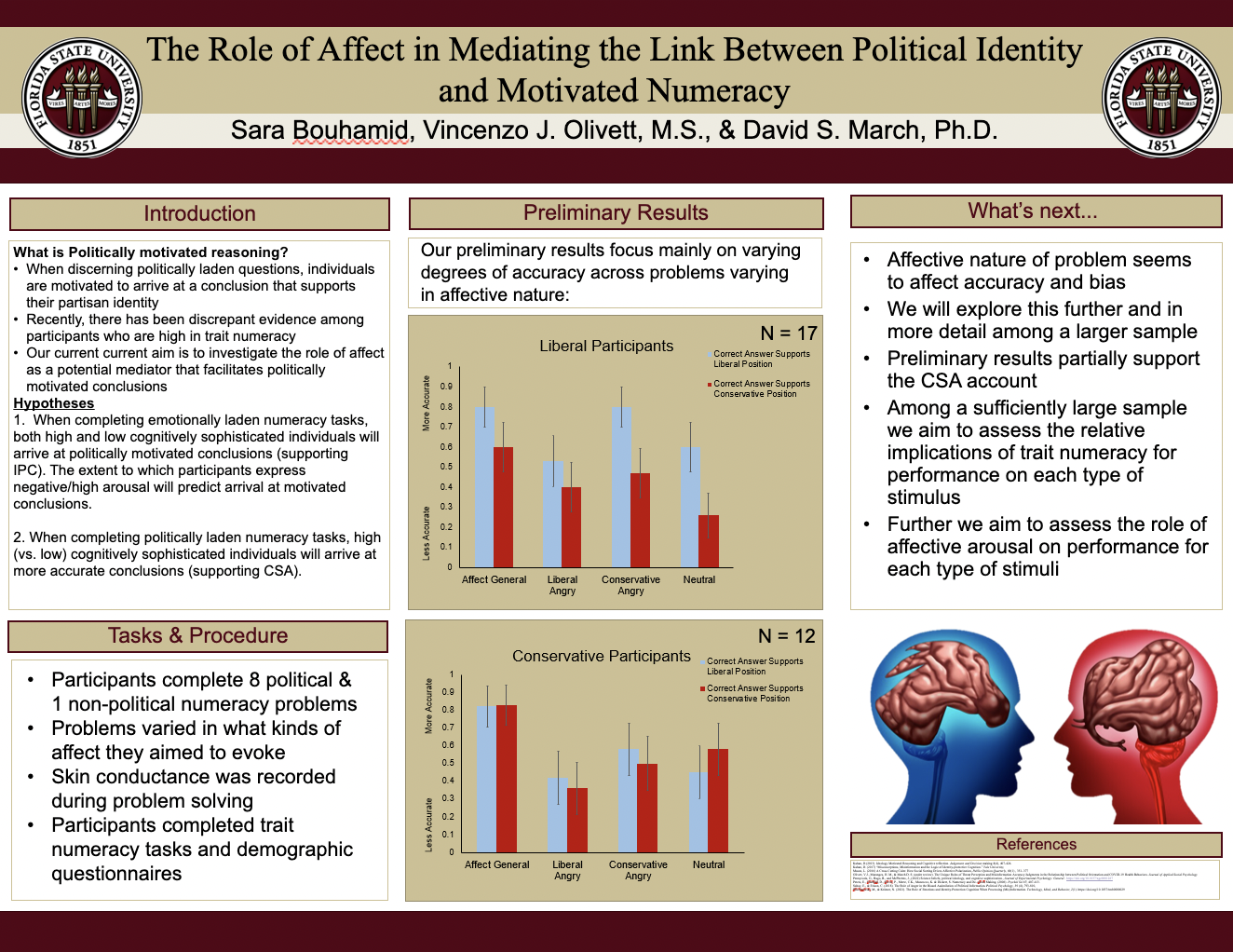Research Symposium
23rd annual Undergraduate Research Symposium, April 6, 2023
Sara Bouhamid Poster Session 2: 1:30 pm - 2:30 pm/ Poster #347

BIO
I am a Senior in the Psychology major at Florida State University. My research interests include political polarization, motivated reasoning, and social psychology. After graduating from FSU, I hope to pursue a JD/PhD joint program. My prospective career goal is to specialize in researching socio-political psychology and motivated reasoning.
Facts V.s. Feelings: The Role of Affect in Mediating the Link Between Political Identity and Motivated Numeracy
Authors: Sara Bouhamid, Dr. David MarchStudent Major: Psychology
Mentor: Dr. David March
Mentor's Department: Psychology Mentor's College: University of Tennessee Co-Presenters:
Abstract
The current work brings to light the role of affective processing in the relationship between cognitive sophistication and politically motivated numeracy. Previous research has forwarded conflicting theories on the role of cognitive sophistication, or the ability to engage in reflective and analytical thinking, in motivated reasoning. On one hand, the Identity Protective Cognition Account (IPC) suggests that individuals who are high in trait Cognitive Sophistication tend to demonstrate more motivated reasoning in political contexts. Alternatively, the Cognitive Sophistication Account (CSA) suggests that those individuals have a propensity to engage in more accurate and analytical thinking regardless of political contexts. To reconcile these discrepant findings, the present work seeks to identify if there exists a mediating role of affective processing in leading cognitive sophisticates to pursue politically motivated (IPC) vs. Accurate (CSA) conclusions. In a single study, participants will complete a cognitive reflection task and 10 political numeracy tasks. Half of the tasks will be negatively affectively laden to induce anger, and half will be neutrally framed. Importantly, this study adds novel data to the previous research by measuring the participants’ affective arousal and emotional expression using skin conductance responses and facial action coding while participants complete the tasks. By examining mechanisms underlying reasoning about scientific evidence, this study aims to advance the literature on science communication and may contribute to identifying ways for the public to utilize their critical thinking faculties when they engage with policy-relevant science.
Keywords: motivated reasoning , Political psychology , Partisan bias, Partisan Psychology, Affect


